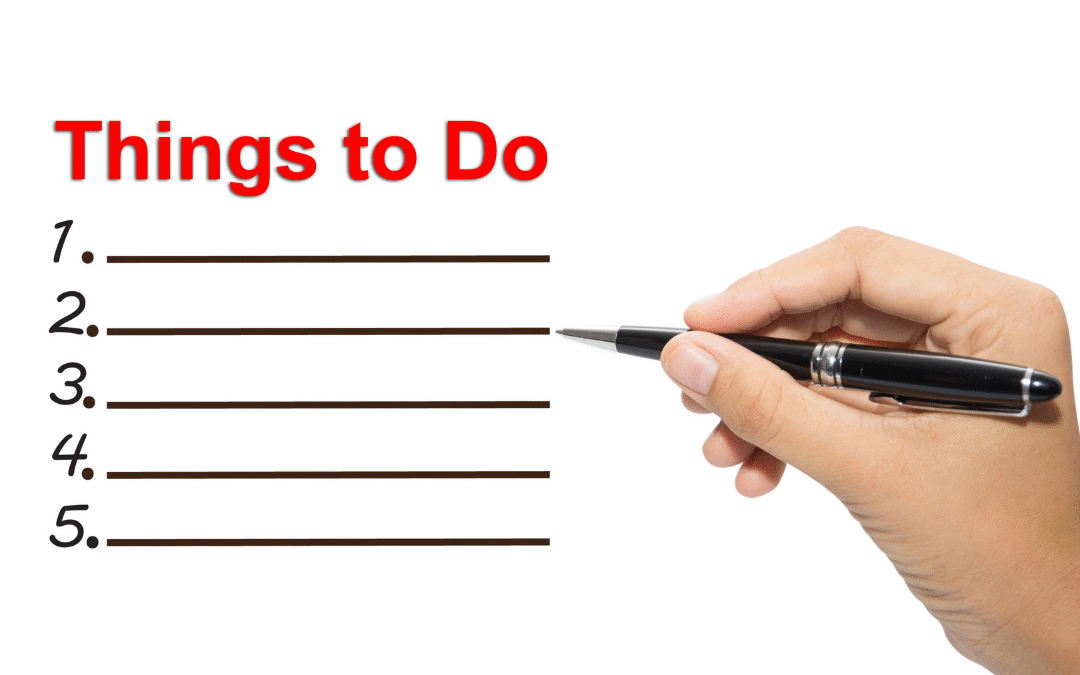Many aspiring writers often overlook the value of beta readers in the writing process. I’ve found that these early readers can provide priceless feedback that helps refine your story, making it more engaging for your audience. Whether you’re working on a novel, short story, or any piece of fiction, understanding the role of beta readers can be a game changer. In this post, I’ll share my thoughts on why they matter and where you can find the perfect beta readers for your next project.
Key Takeaways:
- Beta readers provide valuable feedback that helps authors refine their work before publication, enhancing the overall quality of the manuscript.
- Identifying the right beta readers, who align with the target audience, can significantly improve the relevance and effectiveness of the feedback received.
- Finding beta readers can involve reaching out to writing groups, online communities, or utilizing social media platforms dedicated to readers and writers.
The Essential Role Beta Readers Play in the Writing Journey
Engaging with beta readers can significantly shape your writing journey, offering insights that elevate your manuscript. They serve as a bridge between your creation and your audience, helping to refine your voice, ensure character development shines through, and making sure your plot resonates. Ultimately, their feedback transforms your narrative into a polished and compelling story, ready for publication.
Enhancing Story Structure and Flow
Beta readers help streamline your narrative by identifying inconsistencies in story structure. Their fresh perspectives often reveal pacing issues, plot holes, or scenes that lack impact, allowing me to reorganize or rewrite sections that enhance the overall flow of my story.
Providing Objective Feedback for Improvement
With beta readers, I gain access to honest, constructive feedback that I might overlook. They bring an objective viewpoint, pinpointing areas of confusion or weakness in the narrative. This outside perspective allows me to see my work through the eyes of potential readers, ensuring I address their concerns before my book reaches a wider audience.
The value of objective feedback cannot be underestimated; it acts as a reality check for your manuscript. For instance, one of my beta readers pointed out that a secondary character lacked depth, suggesting I explore their backstory. By implementing this change, not only did the character become more relatable, but the overall narrative was enriched. Feedback like this highlights stark contrasts in reader engagement that might be invisible to an author too close to their work, ultimately steering the story toward greater success.
Identifying the Right Beta Readers for Your Work
Finding the right beta readers can significantly impact your work’s development. A targeted approach will yield feedback that resonates with your genre and style. Start by identifying those who understand your narrative and can provide constructive criticism, ensuring you select readers who share a similar taste or background pertinent to your writing.
Defining Your Ideal Reader Profile
Creating a profile of your ideal beta reader can streamline your search. Consider their genre preferences, experience level, and potential insights they might offer. If you’re writing a romance novel, look for avid readers of that genre who appreciate nuanced character development and complex plots.
Leveraging Social Media and Writing Communities
Social media platforms and writing communities are gold mines for finding beta readers. Join groups on Facebook or forums like Reddit where writers gather to share their works. You can post requests for beta readers, targeting individuals who express a genuine interest in reading your genre. Networking within these spaces can also lead to collaborations or further exposure.
Engagement with writing communities like Wattpad, Scribophile, or even Twitter’s writing hashtag (#WritingCommunity) is beneficial. By showcasing your work and participating in discussions, you’ll attract potential beta readers who are genuinely interested in your project. These platforms often have dedicated spaces for beta reading requests, making it easier to connect with readers eager to help. Additionally, feedback from fellow writers can be particularly insightful since they understand the creative process and challenges, providing a unique perspective on your writing.
Creative Strategies to Engage Potential Beta Readers
Engaging potential beta readers requires a mix of creativity and genuine interaction. Consider utilizing social media platforms to showcase snippets of your work, inviting feedback and discussion directly from your audience. Hosting virtual events like live readings can generate excitement and encourage readers to want to be part of your project. Additionally, joining writing groups or online forums can provide opportunities to connect with enthusiasts who are eager to contribute to your writing journey.
Building Genuine Connections with Readers
Establishing authentic relationships with your audience can foster stronger beta reader commitments. I often interact with readers through social media by sharing personal stories about my writing process and responding to their comments. This openness encourages a community feeling where readers see themselves as part of your journey, making them more likely to invest their time in your work.
Offering Incentives and Recognition
Incentives can be powerful motivators for potential beta readers. Even something as simple as a signed copy of your book or acknowledgment in the final project can make readers feel valued for their contributions. By offering a tangible reward, you not only show appreciation but also encourage more individuals to participate in your feedback process, creating a win-win scenario.
To make the most of this approach, consider setting up a tiered incentive system where beta readers can earn various rewards based on the level of feedback they provide. For instance, those who complete a detailed questionnaire may receive special shout-outs on your website or social media. You might even offer exclusive previews of your next work or invites to private readings. Recognizing your beta readers’ efforts can transform a simple feedback relationship into a lasting collaboration, fostering loyalty and excitement for your future projects. After all, a grateful author is likely to have more engaged readers ready to support their next book!
Cultivating Constructive Criticism from Beta Readers
Creating a fruitful dialogue with your beta readers can transform your manuscript into its best version. Being open to their feedback while guiding them on what to focus on will ensure their critiques genuinely enhance your work. It’s all about nurturing that synergy, where their insights pave the way for your creative evolution.
Setting Clear Expectations and Guidelines
Before you hand over your manuscript, outline what you want from your beta readers. Are you seeking feedback on character development, pacing, or dialogue? Setting clear expectations helps them hone in on the areas that matter most to you, allowing for targeted, valuable insights rather than vague observations.
Nurturing a Two-Way Feedback Loop
A productive feedback cycle thrives on communication. Encourage your beta readers to not only share their thoughts but ask questions and seek clarity on areas they find confusing. This open exchange not only enhances their understanding of your work but deepens their engagement with your story.
Engaging in a two-way feedback loop means fostering an environment where questions flow freely. I often invite my beta readers to share their thoughts and then ask follow-up questions to clarify their feedback. For instance, if a beta reader mentions a character feels underdeveloped, I might probe further, asking what specific actions or dialogue led to that impression. This not only fine-tunes my understanding of their perspective but often reveals patterns that I can address across my manuscript. Ultimately, this dynamic dialogue cultivates a sense of community and collaborative growth, pushing your work to new heights.
Transforming Feedback into Actionable Revisions
Receiving feedback is just the first step; the real magic happens when you take that feedback and make meaningful revisions. It’s like tuning an instrument—once you understand the notes that need adjusting, you can refine your music into something beautiful. I find it helpful to categorize feedback into different themes, allowing me to see patterns and prioritize changes that will have the most impact on my story. Using a matrix or checklist can also help by visually breaking down recommendations and tracking my progress as I make revisions.
Prioritizing Feedback Based on Your Goals
Not all feedback carries the same weight. I like to evaluate suggestions based on how well they align with my writing goals and the story’s overall direction. If a beta reader comments on pacing and I know that’s an area I’m focused on improving, I’ll prioritize their input; however, if someone suggests a plot twist that doesn’t resonate with my vision, I may set that feedback aside without dismissing it entirely. Balancing multiple perspectives helps to refine my narrative while staying true to my original intent.
Maintaining Your Author Voice Amid Revisions
A common challenge in the revision process is keeping my unique author voice intact, even as I apply constructive feedback. Each time I revise, I remind myself of why I started this project and the tone I wanted to convey. Preserving that voice involves evaluating any recommended changes critically to ensure they resonate with the essence of my style. It’s a delicate dance between improvement and authenticity, but aligning my revisions with my voice results in a manuscript that’s both polished and true to me.
To maintain my author voice, I often read through the original text before making changes to re-establish the emotional cadence and style I aim for. Keeping notes on the specific elements that define my voice—like sentence structure, word choice, or themes I explore—can serve as a reference during edits. Engaging with trusted beta readers who are familiar with my previous work also helps reinforce my voice, as their insights will often reflect an understanding of my style, guiding me gently back to my authentic self as I refine my material.
Final Words
Summing up, finding good beta readers can significantly enhance your writing journey. I encourage you to tap into your networks, online communities, and even social media to discover potential readers who resonate with your work. Their honest feedback will help you refine your story and connect with your audience more effectively. So, don’t hesitate to reach out and share your manuscript—your future readers are waiting!
Q: What exactly is a beta reader, and why is their feedback valuable for writers?
A: A beta reader is someone who reads a manuscript before it is published, offering feedback from a reader’s perspective. Their insights are invaluable because they can catch issues such as plot holes, pacing problems, or unclear character motivations that the author might have overlooked. Beta readers help writers refine their work, ensuring that it resonates well with potential readers and meets their expectations.
Q: Where can I find beta readers for my manuscript?
A: There are several avenues to find beta readers. Online writing communities, such as Wattpad or Scribophile, provide platforms where writers can connect. Social media groups on Facebook or Reddit often have dedicated spaces for finding beta readers. Additionally, you can reach out to friends or family who enjoy reading in your genre, or consider local writing workshops and literary events to network with fellow writers and readers.
Q: How should I approach beta readers to ensure productive feedback?
A: When contacting beta readers, it’s important to clearly communicate your expectations and what type of feedback you are seeking. Provide them with a brief overview of your book, including its genre and themes, and specify any particular areas you want them to focus on, such as character development or pacing. Be open to constructive criticism, and establish a timeline for when you would like to receive their feedback to ensure both parties are on the same page.







